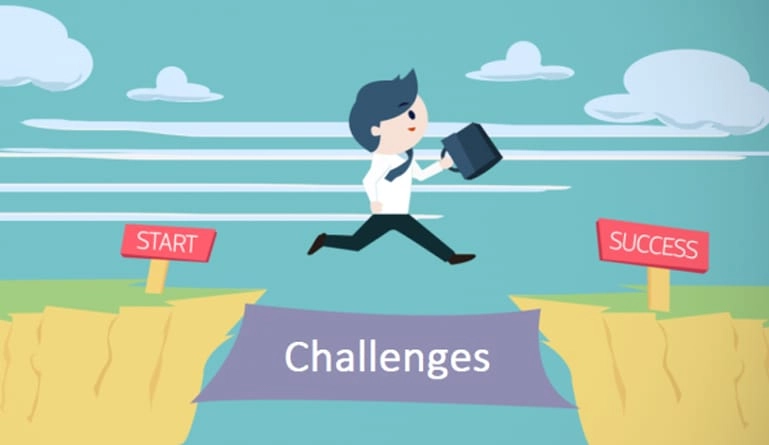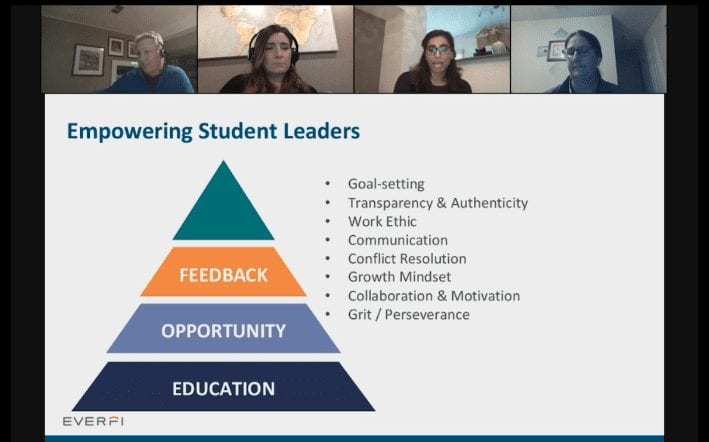Embracing a Growth Mindset for Success
A growth mindset is a crucial component of an entrepreneurial mindset and adaptability. It enables business owners to approach challenges with a positive and proactive attitude, driving innovation and growth. By embracing a growth mindset, entrepreneurs can overcome obstacles, stay adaptable in a rapidly changing business environment, and achieve long-term success.
Research has shown that a growth mindset is closely linked to entrepreneurial success. A study by the Harvard Business Review found that entrepreneurs with a growth mindset were more likely to achieve their goals and experience business growth. This is because a growth mindset allows entrepreneurs to be more resilient, adaptable, and open to learning and development.
In a rapidly changing business environment, a growth mindset is essential for staying ahead of the curve. It enables entrepreneurs to be more agile, responsive, and innovative, which are critical skills for success in today’s fast-paced business world. By embracing a growth mindset, entrepreneurs can stay focused on their goals, overcome obstacles, and achieve long-term success.
So, how can entrepreneurs cultivate a growth mindset? One way is to focus on learning and development. This can involve seeking out new skills, knowledge, and experiences that can help entrepreneurs stay ahead of the curve. It can also involve being open to feedback, criticism, and new ideas, which can help entrepreneurs refine their approach and achieve their goals.
Another way to cultivate a growth mindset is to focus on progress, not perfection. This involves setting realistic goals, tracking progress, and celebrating successes along the way. By focusing on progress, entrepreneurs can stay motivated, engaged, and committed to their goals, even in the face of challenges and setbacks.
Finally, entrepreneurs can cultivate a growth mindset by surrounding themselves with positive and supportive people. This can involve building a network of mentors, peers, and colleagues who can provide guidance, encouragement, and support. By surrounding themselves with positive and supportive people, entrepreneurs can stay focused, motivated, and committed to their goals.
How to Develop a Flexible and Adaptable Approach to Business
Developing a flexible and adaptable approach to business is crucial for entrepreneurs who want to stay ahead of the curve in today’s fast-paced and ever-changing market. A business that is able to adapt quickly to new trends, technologies, and customer needs is more likely to succeed and thrive in the long term. So, how can entrepreneurs cultivate this adaptability and flexibility in their business?
One key strategy is to embrace uncertainty. Rather than trying to control every aspect of the business, entrepreneurs should be open to new ideas, perspectives, and experiences. This means being willing to take calculated risks, experiment with new approaches, and learn from failures. By embracing uncertainty, entrepreneurs can create a culture of innovation and experimentation within their organization.
Another important aspect of adaptability is being open to feedback. Entrepreneurs should encourage feedback from customers, employees, and partners, and be willing to make changes based on this feedback. This helps to identify areas for improvement and stay ahead of the competition. Additionally, entrepreneurs should foster a culture of continuous learning, where employees are encouraged to develop new skills and knowledge.
Fostering a culture of experimentation and learning is also essential for adaptability. This means creating a safe and supportive environment where employees feel comfortable trying new things and taking risks. Entrepreneurs should encourage experimentation and learning by providing resources and support for new projects and initiatives.
Furthermore, entrepreneurs should stay up-to-date with industry trends and best practices. This means attending conferences, reading industry publications, and networking with other business leaders. By staying informed, entrepreneurs can identify new opportunities and stay ahead of the competition.
Finally, entrepreneurs should lead by example. By demonstrating a flexible and adaptable approach to business, entrepreneurs can inspire their employees to do the same. This means being open to new ideas, taking calculated risks, and embracing uncertainty.
By implementing these strategies, entrepreneurs can develop a flexible and adaptable approach to business that will help them stay ahead of the curve and achieve long-term success. By cultivating a culture of innovation, experimentation, and continuous learning, entrepreneurs can create a business that is resilient, adaptable, and poised for growth.
Ultimately, developing a flexible and adaptable approach to business requires a mindset shift. Entrepreneurs must be willing to let go of traditional ways of thinking and be open to new ideas and perspectives. By embracing this mindset, entrepreneurs can create a business that is truly entrepreneurial in spirit – one that is agile, innovative, and always looking for new opportunities to grow and succeed.
The Power of Resilience in Overcoming Entrepreneurial Challenges
Resilience is a critical component of a successful entrepreneurial mindset and adaptability. It enables business owners to bounce back from setbacks, failures, and unexpected challenges, and to emerge stronger and more determined than ever. In today’s fast-paced and rapidly changing business environment, resilience is more important than ever.
So, what is resilience, and how can entrepreneurs cultivate it in their business? Resilience is the ability to absorb and recover from difficult situations, such as financial setbacks, market fluctuations, or unexpected changes in the competitive landscape. It involves being able to adapt quickly to new circumstances, and to find creative solutions to complex problems.
One key way to build resilience is to develop a growth mindset. This means embracing challenges as opportunities for growth and learning, rather than as threats to be avoided. By adopting a growth mindset, entrepreneurs can develop a sense of confidence and self-efficacy that enables them to tackle even the toughest challenges.
Another important aspect of resilience is emotional intelligence. This involves being able to manage one’s emotions, and to stay calm and focused under pressure. By developing emotional intelligence, entrepreneurs can better navigate the ups and downs of business, and make more informed decisions.
Building a support network is also essential for resilience. This means surrounding oneself with people who can provide guidance, encouragement, and support during difficult times. By building a strong support network, entrepreneurs can tap into the collective wisdom and experience of others, and gain valuable insights and advice.
In addition, practicing self-care is critical for resilience. This means taking care of one’s physical, emotional, and mental health, and making time for activities that bring joy and relaxation. By prioritizing self-care, entrepreneurs can maintain their energy and motivation, even in the face of adversity.
Finally, learning from failure is a key component of resilience. This means being able to reflect on past mistakes and setbacks, and to use these experiences as opportunities for growth and learning. By embracing failure as a natural part of the entrepreneurial journey, business owners can develop a sense of resilience and adaptability that serves them well in the long term.
By cultivating resilience, entrepreneurs can develop a mindset and adaptability that enables them to overcome even the toughest challenges. By embracing a growth mindset, developing emotional intelligence, building a support network, practicing self-care, and learning from failure, business owners can build a strong foundation for success, and achieve their goals in even the most uncertain and rapidly changing business environment.
Staying Ahead of the Curve: The Importance of Continuous Learning
Continuous learning and professional development are essential components of a successful entrepreneurial mindset and adaptability. In today’s rapidly changing business environment, entrepreneurs must stay up-to-date with the latest industry trends, best practices, and emerging technologies to remain competitive. By prioritizing continuous learning, business owners can gain a competitive edge, drive innovation, and achieve long-term success.
One key way to stay ahead of the curve is to stay informed about industry trends. This means reading industry publications, attending conferences and seminars, and participating in online forums and discussions. By staying informed, entrepreneurs can identify new opportunities, anticipate challenges, and make informed decisions.
Developing new skills and knowledge is also critical for continuous learning. This means taking courses, attending workshops, and seeking out mentorship and coaching. By developing new skills and knowledge, entrepreneurs can enhance their expertise, improve their performance, and increase their confidence.
In addition, staying up-to-date with emerging technologies is essential for continuous learning. This means exploring new tools and platforms, experimenting with new technologies, and seeking out expert advice. By staying up-to-date with emerging technologies, entrepreneurs can drive innovation, improve efficiency, and enhance their competitiveness.
Networking and collaboration are also important components of continuous learning. This means building relationships with other business leaders, participating in industry events, and collaborating with peers and partners. By networking and collaborating, entrepreneurs can gain valuable insights, access new resources, and build a strong support network.
Furthermore, encouraging a culture of learning within the organization is critical for continuous learning. This means providing training and development opportunities for employees, encouraging experimentation and innovation, and recognizing and rewarding learning and achievement. By encouraging a culture of learning, entrepreneurs can build a team of skilled and motivated employees who are committed to continuous learning and improvement.
By prioritizing continuous learning and professional development, entrepreneurs can develop a mindset and adaptability that enables them to stay ahead of the curve and achieve long-term success. By staying informed, developing new skills and knowledge, staying up-to-date with emerging technologies, networking and collaborating, and encouraging a culture of learning, business owners can build a strong foundation for success and drive innovation and growth in their organization.
Ultimately, continuous learning and professional development are essential for entrepreneurs who want to build a resilient and adaptable business that can thrive in today’s rapidly changing business environment. By prioritizing continuous learning, entrepreneurs can gain a competitive edge, drive innovation, and achieve long-term success.
Building a Support Network: The Value of Mentorship and Community
Building a support network is a crucial aspect of cultivating a resilient and adaptable entrepreneurial mindset. A strong support network can provide guidance, encouragement, and valuable connections that can help entrepreneurs navigate the challenges of starting and growing a business. In this article, we will explore the importance of mentorship and community in building a support network.
Mentorship is a key component of a support network. A mentor can provide guidance, advice, and support to entrepreneurs, helping them to navigate the challenges of starting and growing a business. A mentor can also provide valuable connections and introductions, helping entrepreneurs to build relationships with other business leaders and potential partners.
In addition to mentorship, community is also an essential part of a support network. Joining a community of entrepreneurs can provide access to a network of peers who can offer support, guidance, and encouragement. Community can also provide opportunities for collaboration, partnership, and mutual support.
Peers can also play a critical role in a support network. Peers can provide a sounding board for ideas, offer advice and guidance, and provide support and encouragement. Peers can also provide valuable connections and introductions, helping entrepreneurs to build relationships with other business leaders and potential partners.
Furthermore, online communities can also provide a valuable source of support and connection for entrepreneurs. Online communities can provide access to a network of peers, mentors, and other business leaders, as well as valuable resources and information.
In order to build a strong support network, entrepreneurs should be proactive in seeking out mentors, peers, and community. This can involve attending networking events, joining online communities, and reaching out to potential mentors and peers.
By building a strong support network, entrepreneurs can cultivate a resilient and adaptable mindset that will help them to navigate the challenges of starting and growing a business. A support network can provide guidance, encouragement, and valuable connections that can help entrepreneurs to achieve their goals and succeed in their business ventures.
In conclusion, building a support network is a critical aspect of cultivating a resilient and adaptable entrepreneurial mindset. By seeking out mentors, peers, and community, entrepreneurs can build a strong support network that will help them to navigate the challenges of starting and growing a business.
Leading by Example: How to Foster a Culture of Adaptability in Your Organization
As a business leader, fostering a culture of adaptability within your organization is crucial for driving innovation, overcoming obstacles, and staying ahead of the competition. By leading by example, empowering employees, and encouraging experimentation and risk-taking, you can create a culture that is resilient, adaptable, and poised for success.
Leading by example is a critical component of fostering a culture of adaptability. As a leader, you set the tone for your organization, and your behavior and attitude can have a profound impact on your employees. By demonstrating a willingness to adapt and evolve, you can inspire your employees to do the same.
Empowering employees is also essential for fostering a culture of adaptability. By giving employees the autonomy to make decisions, take risks, and experiment with new ideas, you can create a culture that is innovative, creative, and resilient. Empowering employees also helps to build trust, motivation, and engagement, which are critical for driving success.
Encouraging experimentation and risk-taking is another key component of fostering a culture of adaptability. By creating a safe and supportive environment where employees feel comfortable taking risks and experimenting with new ideas, you can drive innovation and creativity. Encouraging experimentation and risk-taking also helps to build a culture that is resilient and adaptable, as employees learn to navigate uncertainty and ambiguity.
Providing training and development opportunities is also important for fostering a culture of adaptability. By providing employees with the skills and knowledge they need to adapt to changing circumstances, you can create a culture that is resilient and adaptable. Training and development opportunities can also help to build employee confidence, motivation, and engagement.
Recognizing and rewarding adaptability is also essential for fostering a culture of adaptability. By recognizing and rewarding employees who demonstrate adaptability, you can create a culture that values and celebrates adaptability. Recognizing and rewarding adaptability can also help to motivate employees to continue adapting and evolving.
By leading by example, empowering employees, encouraging experimentation and risk-taking, providing training and development opportunities, and recognizing and rewarding adaptability, you can create a culture that is resilient, adaptable, and poised for success. By fostering a culture of adaptability, you can drive innovation, overcome obstacles, and stay ahead of the competition.
In today’s rapidly changing business environment, adaptability is more important than ever. By fostering a culture of adaptability, you can create a organization that is resilient, adaptable, and poised for success. By leading by example, empowering employees, and encouraging experimentation and risk-taking, you can drive innovation, overcome obstacles, and stay ahead of the competition.
Measuring Success: How to Evaluate Your Entrepreneurial Mindset and Adaptability
Evaluating the effectiveness of an entrepreneurial mindset and adaptability is crucial for business leaders to identify areas for improvement and optimize their approach to innovation and growth. By implementing a robust evaluation framework, entrepreneurs can assess their progress, set realistic goals, and make data-driven decisions to drive their business forward.
To measure the success of an entrepreneurial mindset and adaptability, consider the following key performance indicators (KPIs):
- Innovation Rate**: Track the number of new ideas, products, or services introduced within a set timeframe. This KPI helps assess the ability to generate and implement innovative solutions.
- Adaptation Speed**: Measure the time it takes to respond to changes in the market, industry, or customer needs. This KPI evaluates the ability to adapt quickly and effectively.
- Experimentation Rate**: Monitor the number of experiments, pilots, or proof-of-concepts conducted within a set timeframe. This KPI assesses the willingness to take calculated risks and test new approaches.
- Feedback and Learning**: Track the number of feedback sessions, workshops, or training programs attended by team members. This KPI evaluates the commitment to continuous learning and improvement.
- Resilience and Bounce-Back**: Measure the time it takes to recover from setbacks, failures, or unexpected challenges. This KPI assesses the ability to cope with adversity and maintain momentum.
Regularly reviewing these KPIs enables entrepreneurs to identify strengths, weaknesses, opportunities, and threats (SWOT analysis) and adjust their approach accordingly. By incorporating these metrics into their evaluation framework, business leaders can:
- Set realistic goals and objectives aligned with their entrepreneurial mindset and adaptability.
- Track progress and celebrate successes.
- Identify areas for improvement and develop targeted strategies.
- Make data-driven decisions to drive innovation and growth.
By embracing a culture of continuous evaluation and improvement, entrepreneurs can refine their entrepreneurial mindset and adaptability, ultimately driving long-term success and sustainability in an ever-changing business landscape.
Conclusion: Unlocking Your Full Potential as an Entrepreneur
Cultivating a resilient and adaptable mindset is crucial for entrepreneurs to succeed in today’s fast-paced and ever-changing business landscape. By embracing a growth mindset, developing a flexible and adaptable approach to business, and fostering a culture of experimentation and learning, entrepreneurs can unlock their full potential and drive long-term success.
Throughout this article, we have explored the importance of entrepreneurial mindset and adaptability in driving innovation, overcoming obstacles, and staying ahead of the curve. We have also discussed the role of resilience in overcoming entrepreneurial challenges, the need for continuous learning and professional development, and the value of building a support network.
By incorporating these concepts into their business strategy, entrepreneurs can:
- Drive innovation and growth through a culture of experimentation and learning.
- Overcome obstacles and setbacks with resilience and adaptability.
- Stay ahead of the curve with continuous learning and professional development.
- Build a strong support network of mentors, peers, and community.
- Foster a culture of adaptability within their organization.
As entrepreneurs continue to navigate the complexities of the business world, it is essential to remember that a resilient and adaptable mindset is key to unlocking their full potential. By embracing this mindset, entrepreneurs can overcome challenges, achieve success, and make a lasting impact in their industry.
In conclusion, cultivating a resilient and adaptable mindset is not a one-time achievement, but a continuous process that requires effort, dedication, and a willingness to learn and grow. By prioritizing entrepreneurial mindset and adaptability, entrepreneurs can unlock their full potential and achieve long-term success in an ever-changing business landscape.








